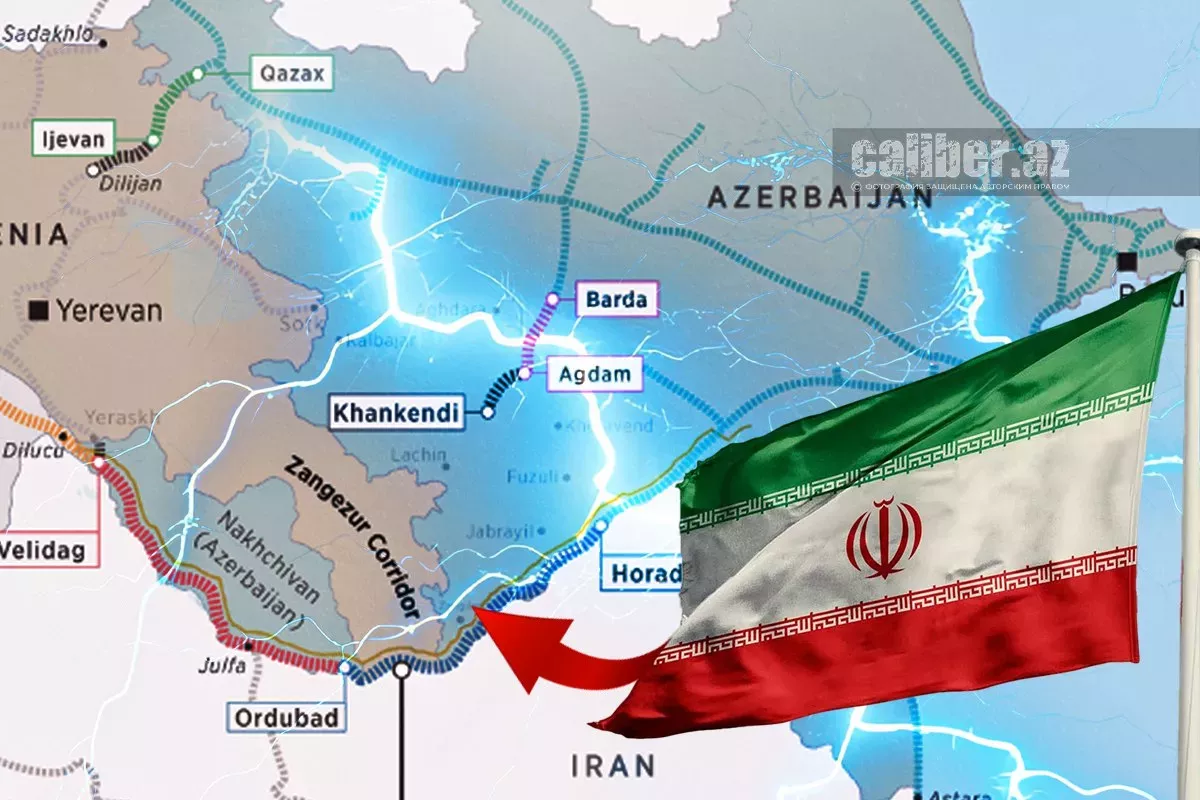TRIPP effect: How Baku, Washington, Yerevan unlock Eurasia’s new trade routes Insights from regional experts
Arguably, one of the main achievements of Azerbaijani diplomacy is its skillful marketing, which transformed the Zangezur Corridor route into the international TRIPP project under the direct patronage of Donald Trump. As is well known, one of the key components of the Joint Declaration, signed by the leaders of Azerbaijan and Armenia and President Trump in Washington, is the creation of a strategic transit corridor called the “Trump Route for International Peace and Prosperity” (TRIPP), which will provide direct connectivity between mainland Azerbaijan and its Nakhchivan Autonomous Republic.
American companies will play an active role in the creation of this route. The project plans include the construction of railways and highways, oil and gas pipelines, as well as optical communication infrastructure. The goal of TRIPP is to establish a safe and fast trade route connecting the markets of Central Asia, the Middle East, and Europe.
How is the TRIPP project viewed abroad, particularly in countries that see the Middle and Zangezur corridors as key to future transport routes and economic opportunities? Caliber.Az asked Turkish and Kyrgyz political analysts for their insights.
Turkish expert Kerim Has congratulated Azerbaijan on the beginning of a peaceful period in its relations with Armenia and noted that this development is hugely significant for the entire region, as it opens up prospects for long-term stability and cooperation.

“I hope that the peace agreement will soon be implemented in practice. As for Ankara’s view of the prospects of the Zangezur Corridor — or, as it is called, the ‘Trump Route’ — it should be noted that Armenia has long been drifting away from Russia, while Azerbaijan is experiencing a deep crisis in its relations with Moscow. As a result, neither side wanted Russia to implement and control this project. Among Western participants, there were also constraints: France is clearly pro-Armenian, Britain is pro-Azerbaijani, and Germany is less interested. Against this backdrop, the United States emerged as the optimal compromise option acceptable to all parties,” the expert emphasised.
He explained that it was this combination of factors that allowed Washington to take part in the project while avoiding an open conflict with Russia.
“Trump maintains good relations with Aliyev, and Armenia has signed a Charter on Strategic Partnership with the United States. Given the current personal contacts between Trump and Putin, the Kremlin would not strongly oppose US involvement in overseeing the Zangezur Corridor.
In practice and in legal terms, the United States is now stepping into the role Russia once held, not just in this project but across the South Caucasus. The reason is simple — since the start of the conflict in Ukraine, Russia has been forced to concentrate its resources in that direction, and its influence in the region is gradually weakening. In geopolitics, vacant positions don’t remain empty for long, and now another actor has stepped in.
Türkiye cannot assume a leading role on Armenian territory, so it was logical for Ankara to invite the Americans. They are a NATO ally, and in the current situation, Russia is unable to respond as sharply as it could, say, a few years ago. Yes, there is a long-term risk of transferring the geopolitical confrontation between Russia and the West to the South Caucasus, but at the moment, while Moscow is preoccupied with Ukraine, this is a ‘win-win’ situation for Türkiye, Azerbaijan, and Armenia,” the expert believes.

He also added that, for Ankara, this decision was a pragmatic move given the favourable circumstances.
“This route is strategically important for the United States as part of the Middle Corridor linking China and Europe, giving Washington influence far beyond trade and logistics. With China seen as a primary global competitor, the US aims to strengthen its position along routes critical to Beijing. The Zangezur corridor also forms part of the North–South route, allowing the US to impact trade flows between Russia, Armenia, and Türkiye.
I am convinced that America’s involvement in Armenia will go beyond annual military exercises or managing the corridor — cooperation is likely to deepen, including in the military sphere. For Türkiye, the corridor provides direct access to mainland Azerbaijan and onward through the Caspian to Central Asia, bypassing Russia and Iran.
This is strategically significant for both Baku and Ankara, as it diminishes Iran’s transit role, which opposes the project but cannot obstruct it. Once operational, the corridor is expected to attract more investment in Caspian infrastructure from Kazakhstan, Azerbaijan, Türkiye, and potentially Western countries, boosting trade and economic cooperation across the region,” the expert said.
He added that this will strengthen Türkiye’s position in Central Asia and create new logistical opportunities.
“For China, the Middle Corridor is extremely important, but it also makes Beijing more dependent on US partners and allies — Türkiye, Azerbaijan, Armenia, and Georgia. Thus, the Zangezur Corridor becomes not only a point of intersection between Russian and Western interests but also a stage for strategic competition between China and the United States.
In the long term, it is important for Türkiye to open its borders with Armenia in coordination with Azerbaijan to advance regional projects and integration. This will help ensure that Turkish interests are not held hostage by great power confrontations. Ankara must develop cooperation with all countries in the region, including the Central Asian states, maintaining flexibility in its foreign policy. This is the way to build a sustainable architecture of peace in the South Caucasus — not through confrontation, but through cooperation and mutual benefits,” the Turkish expert concluded.

In turn, Sheradil Baktygulov, director of the Institute for World Policy Study in Kyrgyzstan, is confident that the Washington summit held on August 8, 2025, was the greatest event in contemporary Eurasian history.
“The two countries, with US mediation, initialed a peace agreement, and this long-awaited event will have a positive impact on the development of the South Caucasus and Central Asia. These regions form the backbone of the Eurasian continent, and establishing peaceful and neighbourly relations between Azerbaijan and Armenia paves the way for multilateral and mutually beneficial cooperation among the countries of the South Caucasus and Central Asia,” the political analyst said.
One example of such cooperation, in his view, is the development of new routes within the Middle Corridor.
“One key point of the Joint Declaration signed in Washington is the resolution of long-standing disputes over the operation of the Zangezur Corridor, the location of which allows it to become part of the Middle Corridor. This could happen soon, as Azerbaijan is already moving forward with projects along the corridor. According to World Bank estimates cited by Forbes, opening the Zangezur Corridor could boost global trade by $50–100 billion annually over three years.
Experts also agree that it would cut transit times across Eurasia by 12–15 hours—a significant advantage for European consumers of high-tech goods, which have rapidly changing product lines. Infrastructure cost savings are projected at $3–5 billion over the first 5–10 years, with annual reductions in logistics expenses reaching $20–30 billion,” the pundit explained.
In his view, the existing skepticism about the Zangezur Corridor does not hold up to scrutiny. For example, there is a recurring claim about a hypothetical US invasion of Iran via this corridor, but to do that, one would first need to assemble a “strike force” of personnel and equipment, including command posts, communications systems, and more. It would be impossible to do this covertly.
“The Armenian section of the Zangezur Corridor remains under Yerevan’s jurisdiction. The other claims are not worth attention, as they are mainly aimed at ‘demonising’ Azerbaijan and Armenia. Overall, the Zangezur Corridor could become a catalyst for a new phase of development in Central Asia, opening up new opportunities for joint economic growth,” Baktygulov concluded.








